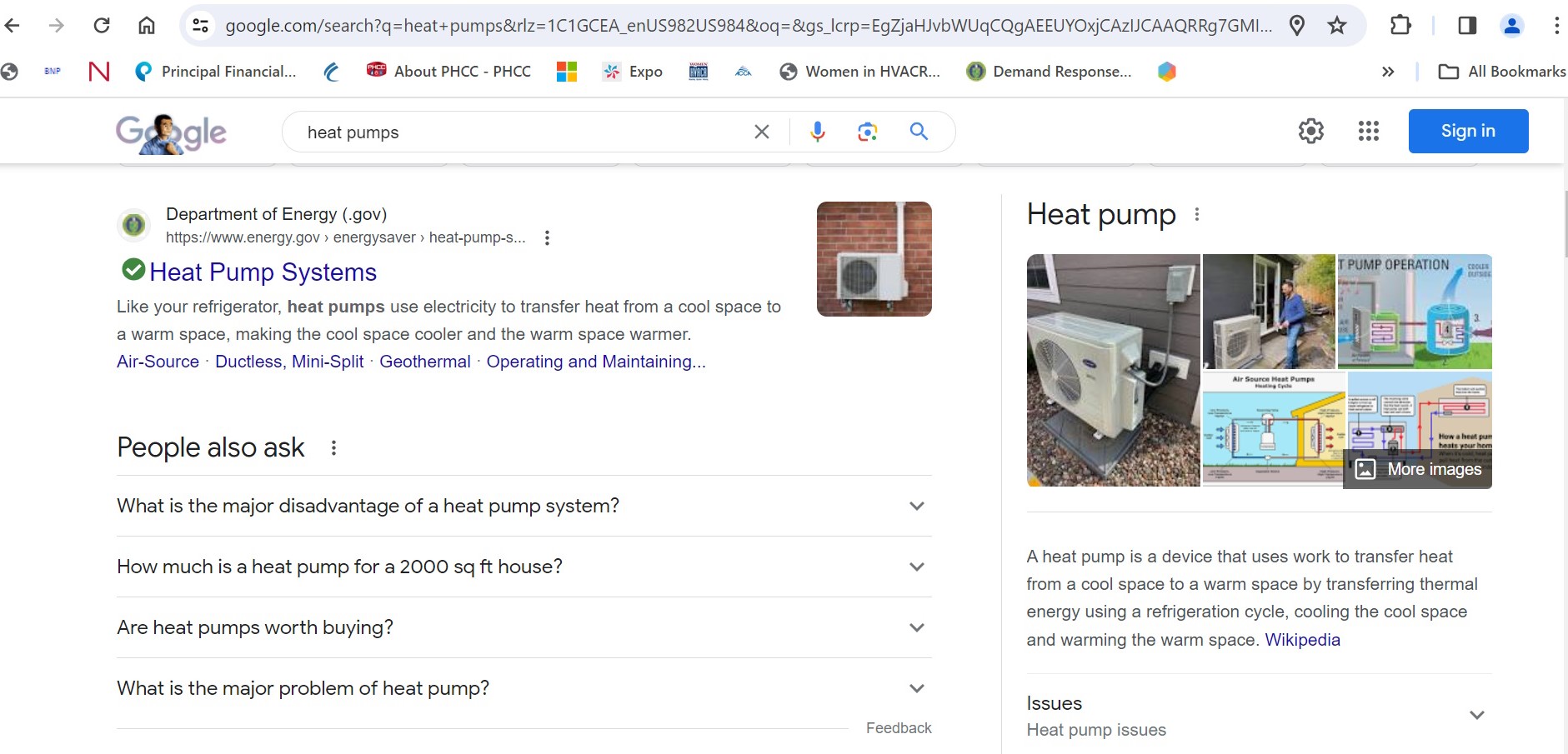Google wants to be the angel on your shoulder, that little voice steering you toward the more virtuous choice, when it comes to decisions about actions that affect the climate.
That includes decisions about heating and cooling systems, which, as HVAC professionals know, account for a major portion of the energy use and greenhouse gas emissions that can be attributed to buildings.
Google has built into its U.S. search function a comparison tool that calls up details about residential HVAC equipment when users search terms like “air conditioning,” “furnace,” “heat pump,” or “boiler.” Such a search will yield information on how the system works and its efficiency, plus side-by-side comparisons and, if applicable, available financial incentives that can defray the consumer’s costs.

Click screenshot to enlarge
LOOK IT UP: This screenshot shows information turned up in a Google search of the term “heat pumps.” (Staff photo)
“We’ve heard from our users that they want easier ways to learn about and compare heating and cooling options,” said Joan Huang, senior project manager at Google. “But making sense of the options can be overwhelming and might come at the worst possible time, like when systems break in the middle of winter or during a summer heat wave.”
Huang said Google teamed up with the Department of Energy, its EnergyStar program, and the International Energy Agency on the project.
“Our goal is to empower people with the tools and information they need to make informed decisions that best align with their household needs,” she said.
The Google HVAC helper is just one part of the tech giant’s multifaceted sustainability and climate-change mitigation project. The company is also involved in helping traffic engineers improve traffic flow with the use of artificial intelligence (AI); providing more information, through the search function, on electric vehicles; using Google Earth to make it easier for planners to determine options for solar power; and using AI to forecast floods and track wildfires and predict where they might spread, among other projects.
Fuel-efficient routing on Google Maps, available in the U.S., Canada, and Europe, is being introduced this year in India and Indonesia.
“We want to help people, cities, and other partners collectively reduce 1 gigatonnes of carbon-equivalent emissions annually by 2030,” Google CEO Sundar Pichai told attendees at Sustainable with Google, a recent conference. “That’s equal to the emissions of a major country like Japan.”
“Google has a long track record of leadership when it comes to sustainability and we continue to accelerate this work,” Huang said. “We were the first major company to be carbon neutral in 2007, and in 2017 became the first major company to match our 100% electricity use with renewables.”








